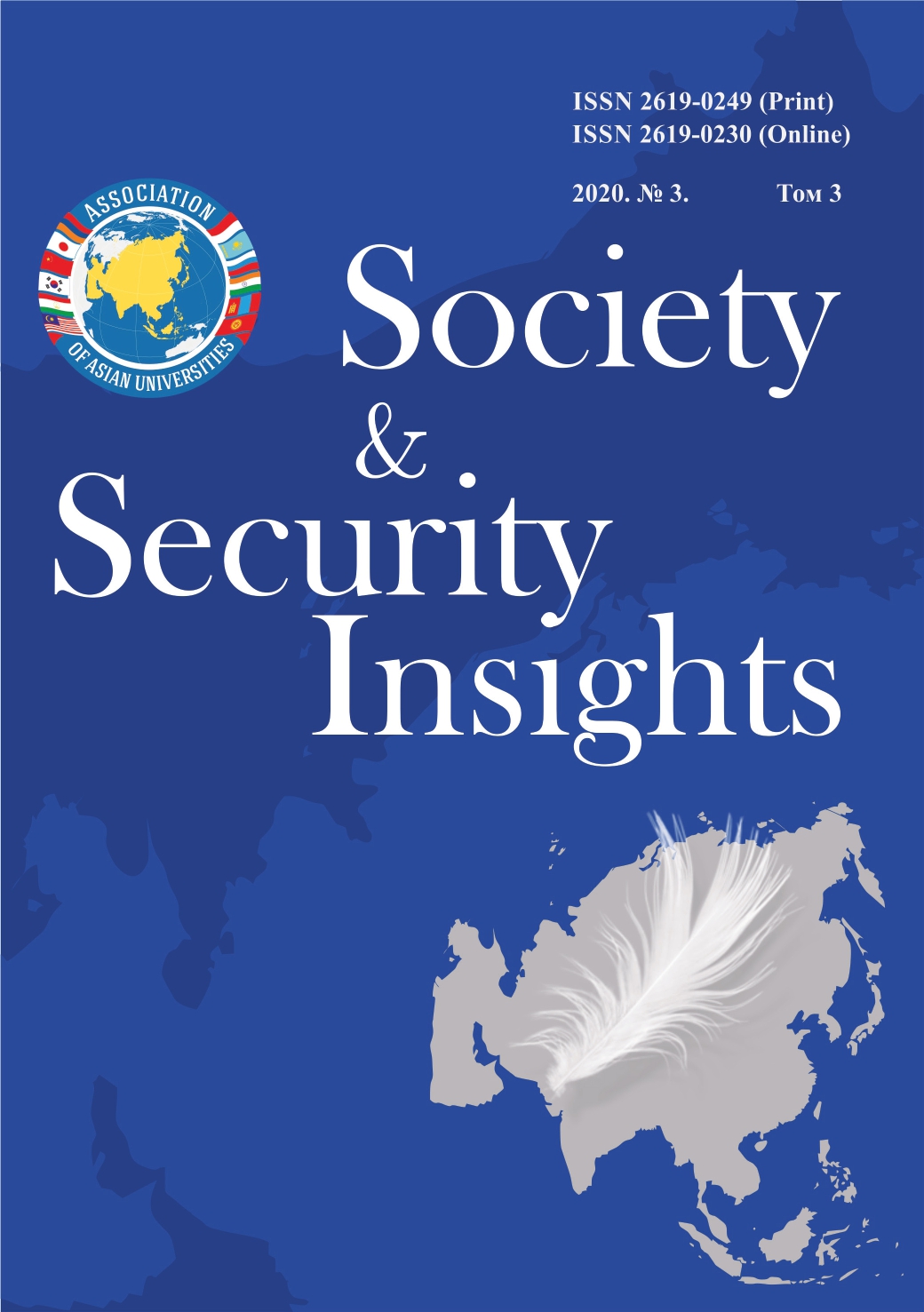THE CIVILIZATION IDEA OF RUSSIA AS A FACTOR OF GLOBAL SECURITY
Main Article Content
Abstract
Modern transformations of the world community lead to the increasing of the global risks and to the decreasing of the significance of the western model of socio-political development, the ideological basis of which is liberalism, which still plays an important role in the integration processes of our time. The crisis trends in the global economy and politics have worsened in connection with the COVID-19 pandemic and have exposed the inadequacy of the recently developed interpretations of liberalism to the objective requirements of global security. The development of the civilization idea of Russia, based on the coordination of the concepts of freedom, responsibility and security in the conditions of contradictory interaction of internal and external risks, will serve to reduce the degree of total uncertainty. The ideologem of "Risk, Responsibility and Freedom" can also contribute to the development of a new model of the world order and to the resolution of global security problems.
Downloads
Metrics
Article Details

This work is licensed under a Creative Commons Attribution 4.0 International License.
Authors retain the copyright of their manuscripts, and all Open Access articles are distributed under the terms of the Creative Commons Attribution License, which permits unrestricted use, distribution, and reproduction in any medium, provided that the original work is properly cited.
References
Менделеев Д.И. К познанию России. Вестник высшей школы, 1992, No. 4–9, 87–95.
Панарин А.С. Россия в циклах мировой истории. М.: Изд-во МГУ, 1999.
Панарин А.С. Стратегическая нестабильность в XXI веке. М.: Алгоритм, 2003.
Ходаковский Е.А. Геоцивилизационные основы единства пространства и времени. Пространство и Время. 2010, No. 2, 22–31.
Ходаковский Е.А. Значение и перспективы Европы и России в системе геоцивилизации. Электронное научное издание Альманах Пространство и Время, 2014, 5.1 (1). URL: 2227-9490e-aprovr_e-ast5-1-1.2014.11 (дата обращения: 24.07.2020).
Global Trends 2025: A Transformed World. NIC 2008-003. November 2008. URL: https://www.dni.gov/files/documents/Newsroom/Reports%20and%20Pubs/2025_Global_Trends_Final_Report.pdf (дата обращения: 28.07.2020).
REFERENCES
Global Trends 2025: A Transformed World. NIC 2008-003. November 2008. URL: https://www.dni.gov/files/documents/Newsroom/Reports%20and%20Pubs/2025_Global_Trends_Final_Report.pdf (accessed 24 July 2020).
Il’in, I.A. (2006). O_Russkoj_Idee [About the Russian idea]. Im Werden Verlag: non-commercial electronic publication. URL: https://imwerden.de/pdf/iljin_o_russkoj_idee.pdf (accessed 29 July 2020).
Khodakovskiy, E. A. (2010). Geocivilizacionny`e osnovy` edinstva prostranstva i vremeni [Geocivilization Foundations of the Unity of Space and Time]. Prostranstvo i Vremya [Space and Time], no. 2, 22–31.
Khodakovskiy, E.A. (2014). Znachenie i perspektivy` Evropy` i Rossii v sisteme geocivilizacii [The Importance and Prospects of Europe and Russia in the Geocivilization System]. E`lektronnoe nauchnoe izdanie Al`manax Prostranstvo i Vremya [Electronic Scientific Edition Almanac Space and Time], 5.1 (1). URL: http://2227-9490e-aprovr_e-ast5-1-1.2014.11 (accessed 24 July 2020).
Mendeleev, D.I. (1992). K poznaniyu Rossii. [To the Knowledge of Russia]. Vestnik vy`sshej shkoly` [Herald of Higher School], no. 4–9, 87–95.
Panarin, A. S. (1999). Rossiya v ciklax mirovoj istorii [Russia in World History Cycles]. Moscow: MGU.
Panarin, A. S. (2003). Strategicheskaya nestabil`nost` v XXI veke [Strategic Instability in the XXI Century]. Moscow: Algoritm.


 http://orcid.org/0000-0003-1204-5129
http://orcid.org/0000-0003-1204-5129